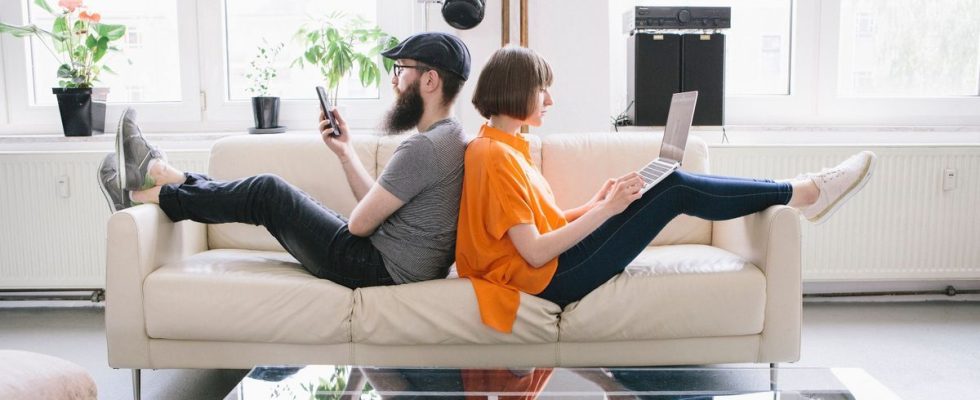Published on
Updated
Reading 2 min.
Cell phones follow us everywhere, from the queue at the supermarket to the bathroom. But this digital invasion is not without consequences on our personal well-being. A study, published in the Journal of Occupational and Organizational Psychology, states that it is also harmful on many levels, including professionally.
The authors of this research looked at what English speakers call “phubbing”. This term, derived from the contraction of “phone” and “snub”, refers to the fact of ignoring one’s interlocutor in favor of a screen. This practice is said to be particularly widespread among couples, which can obviously become a source of tension, even arguments. “Phone use erodes the bonds between couples and hinders their ability to discuss and resolve issues and concerns that bother them“, said Professor Yasin Rofcanin, co-signatory of the study, in a statement.
But Yasin Rofcanin and his colleagues have noted that the effects of “phubbing” are not limited to the intimate sphere. After analyzing the behaviors over two weeks of 65 American heterosexual couples with children, both of whom work full time, researchers noticed that smartphones prevent spouses from supporting each other in maintaining a good balance between their family responsibilities and professionals.
However, we know how important it is to find harmony between the time devoted to work and that to private life, especially for women. The latter are often forced to juggle their personal and professional obligations, due to a lack of an equal distribution of domestic tasks in most households. This situation weighs on their morale, especially if they cannot talk to their other half about it because she is too busy “scrolling” endlessly on her phone.
Good in his body, good in his head!
The importance of screen-free time
Women and men agree that the smartphone interferes a little too much in life as a couple. Six out of ten French people believe that their partner spends too much time on their cell phone, according to a survey by the research firm Poll & Roll for Bouygues Telecom, dating from January 2021. A quarter of the 1,000 respondents admitted to looking at their smartphone notifications when they woke up, before even saying hello to their partner. Enough to give rise to a feeling of distance within the couple.
This distance is harmful on an emotional level, but also professionally. Indeed, Yasin Rofcanin and his colleagues noticed that women whose partners engage in “phubbing” at home show less creativity at work. They change their job description less according to their ambitions and wishes—a practice known as “job crafting”—than those who benefit from the full and complete attention of their partner in private.
As the researchers point out, “job crafting” is very interesting in many ways for workers, but also for their employers. It is a powerful lever for commitment and collective performance. Companies would therefore have every interest in making their employees aware of the dangers of “phubbing”, and encouraging them not to be hyperconnected outside of working hours.
For couples, it is therefore recommended to set aside time without the phone so as not to lose complicity. The smartphone can be a wonderful tool for opening up the world and others, but on condition that you don’t always have your eyes fixed on it.

